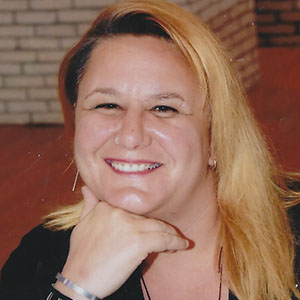
Parvy Palmou
Country: Greece
Organization: Greek Transgender Support Association (GTSA)
Short CV
Parvy Palmou they are an accredited E.A.G.T Gestalt Therapist, a clinical psychologist and activist, working privately in Athens Greece. In 2010 they joined the Greek Transgender Support association and worked with trans activist Marina Galanou on depathologization and legal gender recognition of trans identities until her recent passing. For the last 13 years they are Head of the Department of Health for Trans and Intersex Families at the Greek Transgender Support Association where they practice group and individual gestalt therapy with transgender, intersex and non-binary people and their families. In 2021 they were a lecturer at the University of the Aegean for the LGBTQI+ Gestalt Affirmative Counseling Program that they co-created together with Anna Apergi, president of GT.S.A. For the past 6 years they are a country expert for the ILGA Europe annual review. Currently they are a PhD candidate at the University of Bolton performing research on inclusive trans healthcare.
Round-table discussion
(together with: Anna Apergi-Konstantinidi & George Kesisoglou & Chloe Kolyri & Pavlos Zarogiannis)
Title: Gender, identity, and sexuality as multiplicities: heteroglossia and polyphony
It seems that, in recent years, what Aristotle once formulated is increasingly accepted, namely that “it seems impossible for all things to be one” and that ultimately the “one… is many”. This notion seems almost self-evident, if one considers, even for a moment, the diversity of all living beings, humans included. It is a notion that could lead to a horizontal distribution, mutual recognition, and equal acceptance of all living beings.
And yet: the one may be many, but the many were sacrificed, and continue to be sacrificed, in the name of the one. Because what has prevailed and what has been imposed for centuries is categorization, grouping, and homogenization, as well as the vertical hierarchy of homogenized categories and groups, something that led, and still leads, to prohibitions, marginalization, exclusions, and conditional inclusions with painful, traumatic, and sometimes tragic consequences for those who belong to the arbitrarily and pejoratively called “minority” groups.
Maybe now is the time to remember Aristotle’s saying about the multiplicity of beings and to reflect on their heteroglossia and polyphony. And, of course, it is also a time for us to contemplate the depth and implications of this saying at all levels of our psychotherapeutic practice. And this not only in relation to our patients, but also to us as therapists.

